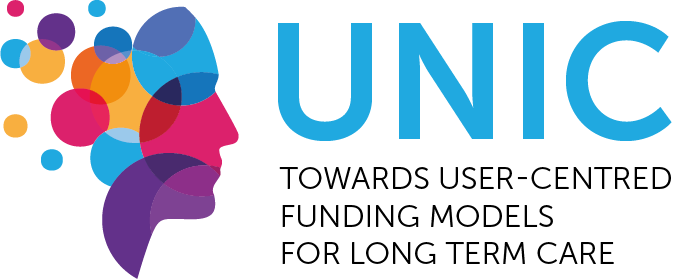What are personal budgets
A Personal Budget is amount of money which is provided to an person by the public authorities. The person can decide how to use the money to cover their support needs.
Why should we develop personal budgets funding model?
Meet the needs
Long-term care and support struggle to meet the individual needs and wishes of persons with support needs.
Challenges
Long-term care and support face challenges with access, affordability, quality of services, sustainability and workforce development.
Improvement
Personal Budgets improve the well-being of persons with long-term care and support needs.
Active participation
They enable people to make decisions, control their lives and participate actively in the development of services.
What is a personal budget?
A Personal budget is an amount of money that is given to a person by the public authorities. This budget is for the person to decide how to use it to meet his/her support needs and arrange the support he/ she needs.
Personal budgets funding systems represent a reform of the traditional funding model for social care and support services, including long-term care services. In traditional models, public funding goes from the public authorities directly to the service providers, who then provide the relevant services to persons with care and support needs. However, in this way, individuals have limited choice and control over the type of services they want to receive. This also means that these systems are not able to guarantee the respect of the Human Rights principles. For example:
- the right to receive support
- the right to freedom, choice and control
- the right to contribute to the community
- the right to inclusion and independent living.
To the contrary, user-centred funding models put the person with care and support needs at the centre of the model. Individuals are free to choose and receive the type of support they need. These models also help people to have more freedom, citizenship, and access to their human rights, in line with the UN Convention on the Rights of Persons with Disabilities (UNCRPD).
UN Convention on the Rights of Persons with Disabilities (UNCRPD)
The UN Convention on the Rights of Persons with Disabilities (UNCRPD) is an international agreed document among States which sets out the rights of people with disabilities. People with disabilities have the same human rights as everyone else and that is what the Convention highlights.
Some of the key principles promoted and protected by the Convention are:
- Respect of inherent dignity
- Self-determination and individual autonomy
- Non-discrimination
- Equality of opportunity
- Full and effective participation and inclusion in the society
- Accessibility.
For more information click here
What are the benefits of personal budget systems?
There are many advantages associated to personal budgets. The most important ones are the following:
- Individuals have more choice and control over the type of care they wish to receive and the life they want to live;
- Services are more tailored to the needs of the users;
- Individuals experience major improvements in their general health, well-being and personal dignity;
- Services are fully integrated in the community and accessible by all;
- Professionals are more satisfied with their jobs because they see the positive impact they have on the quality of life of persons with care and support needs.
